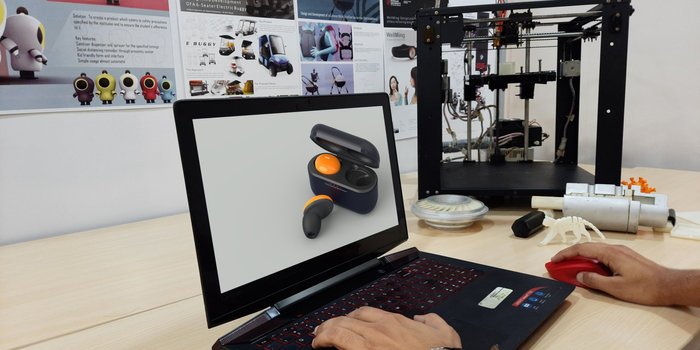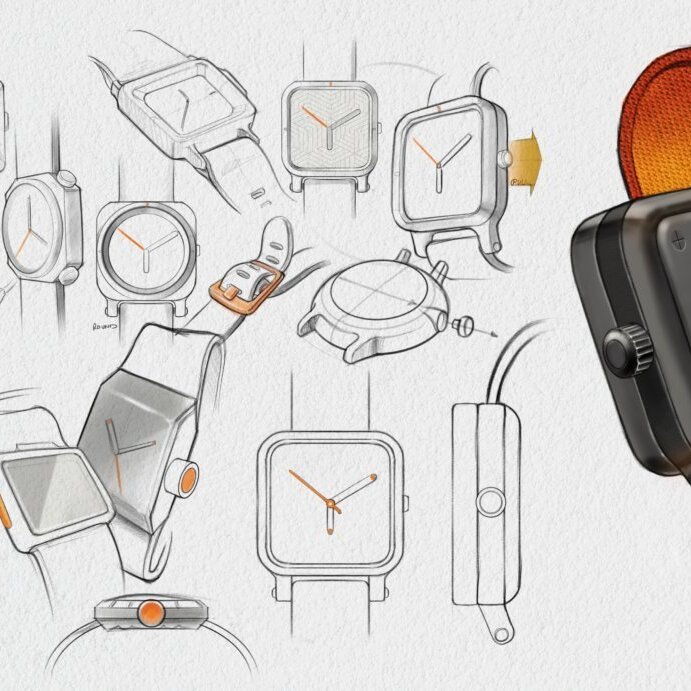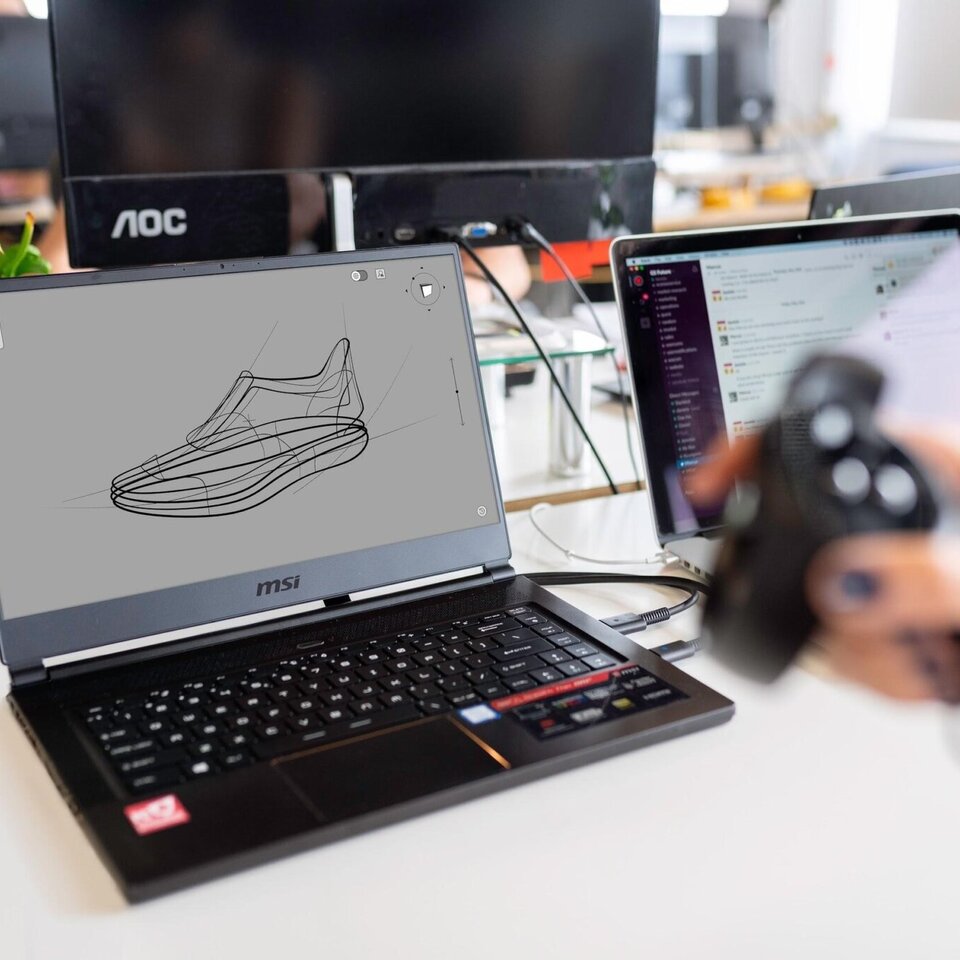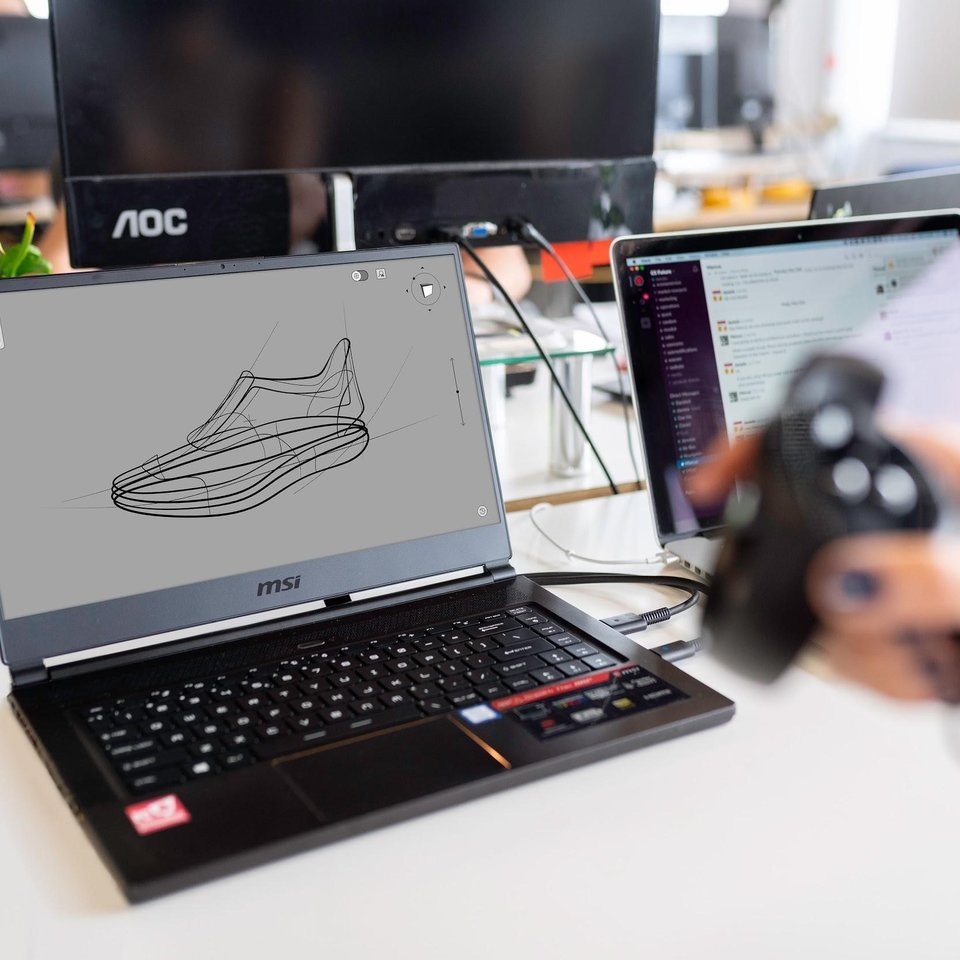
Department of Industrial Design
Design is a ubiquitous part of our world today. From everyday products like electronics and furniture to field-specific products like medical devices and aeronautical parts, product design plays a deciding role in how each product looks, feels, and functions.
Good product design addresses the unmet needs of customers, ensures functionality, delivers on aesthetics and comfort, and offers convenience and efficiency to those using it.
The Department of Industrial Design was established 22 years ago to train Indian students in the global best practices of product design. Initially affiliated to Coventry University, the Department today is an integral part of the Faculty of Art and Design and offers specializations such as designing medical devices, consumer electronics, furniture, and transportation design.
The curriculum, teaching, and advanced studios and labs, ensure that students graduate with a thorough understanding of the various aspects of product design — right from conceptualization and usability to manufacturing and marketing.
Vision
MSRUAS aspires to be the premier university of choice in Asia for student centric professional education and services with a strong focus on applied research whilst maintaining the highest academic and ethical standards in a creative and innovative environment
Mission
Our purpose is the creation and dissemination of knowledge. We are committed to creativity, innovation and excellence in our teaching and research. We value integrity, quality and teamwork in all our endeavors. We inspire critical thinking, personal development and a passion for lifelong learning. We serve the technical, scientific and economic needs of our Society.
Program Educational Objectives (PEO)
- Inculcate in-depth research and design thinking methodology to generate design ideas for new and innovative products
- Induce effective usage of innovative and creative thinking techniques to develop unique products for the Design Industry and relevant societal requirements considering current design trends
- Impart advanced design skills, manual and digital tools, advanced surface modeling techniques and complex manufacturing and assembly techniques to develop and communicate design ideas effectively
- Advocate strong human values, social, interpersonal, leadership and entrepreneurial skills required for professional success in evolving global professional environments
Programme Specific Outcomes (PSO)
- Apply design methodologies and research to solve complex design problems and create innovative design solutions
- Demonstrate advanced design skills, digital model making and physical prototyping skills to convey design ideas
- Adapt to technological advancements in modern design tools to communicate design ideas considering aesthetic, material and functional parameters for a wide spectrum of product design applications to solve design problems
- Demonstrate an understanding of the importance of life-long learning through professional development, practical training, leadership qualities, specialized certifications and entrepreneurial skills for betterment of organization environment and society
Programme Outcomes (PO)
- Apply knowledge of art and Design fundamentals to solve complex problems in product development
- Identify design problems, interpret data and arrive at meaningful conclusions involving design inferences
- Design an artefact considering functionality, usability and safety, and the cultural, societal, and environmental considerations
- Ability to comprehend and solve complex design problems by interacting with the end users
- Apply appropriate tools and techniques and comprehend utilization of resources appropriately to complex design activities
- Ability to comprehend the effect of design solutions on legal, cultural, social and functional and safety aspects
- Ability to develop sustainable solutions and comprehend their effect on society and environment
- Apply ethical principles to design practices and professional responsibilities
- Ability to work as a member of a team, to plan and to integrate knowledge of various design and engineering disciplines and to lead teams in multidisciplinary settings
- Ability to communicate effectively on complex design activities with the design community and with society at large, such as, being able to comprehend and write effective reports and design documentation, make effective presentations, and give and receive clear instructions.
- Ability to demonstrate knowledge and understanding of the design and management principles and apply these to one’s own work, as a member and leader in a team, to manage projects and in multidisciplinary environments.
- Ability to adapt to the changes and advancements in technology and engage in independent and life-long learning
Head of Department
Programmes

B.Des. Product Design
CODE: FADPD101Technology Campus (Peenya Campus)
B.Des. Interaction Design
CODE: FADID 101Technology Campus (Peenya Campus)
M.Des. in Product Design
CODE: FADPD 101Technology Campus (Peenya Campus)- Research
Doctor of Philosophy (PhD)
Gnanagangothri Campus, Technology Campus (Peenya Campus)





